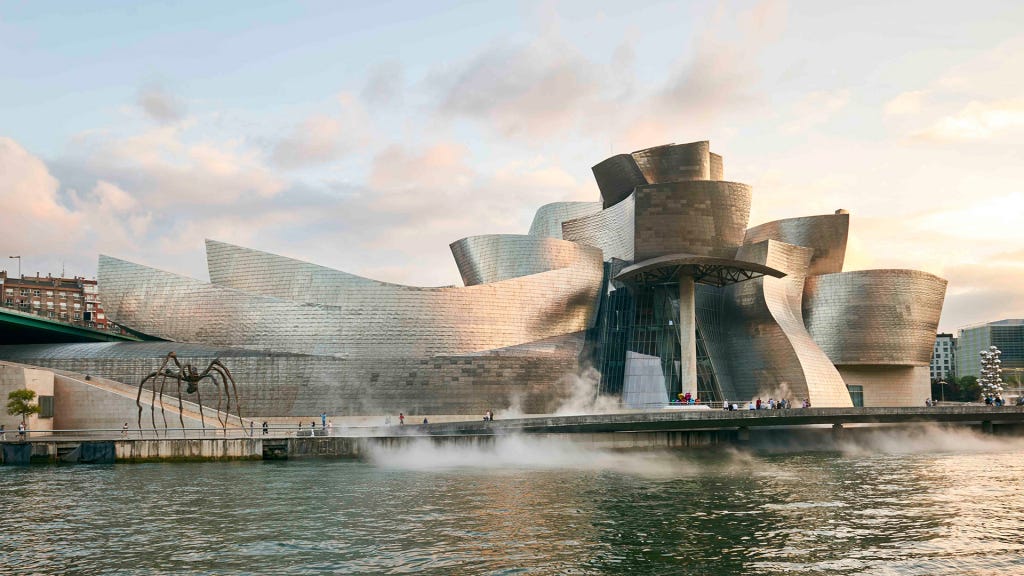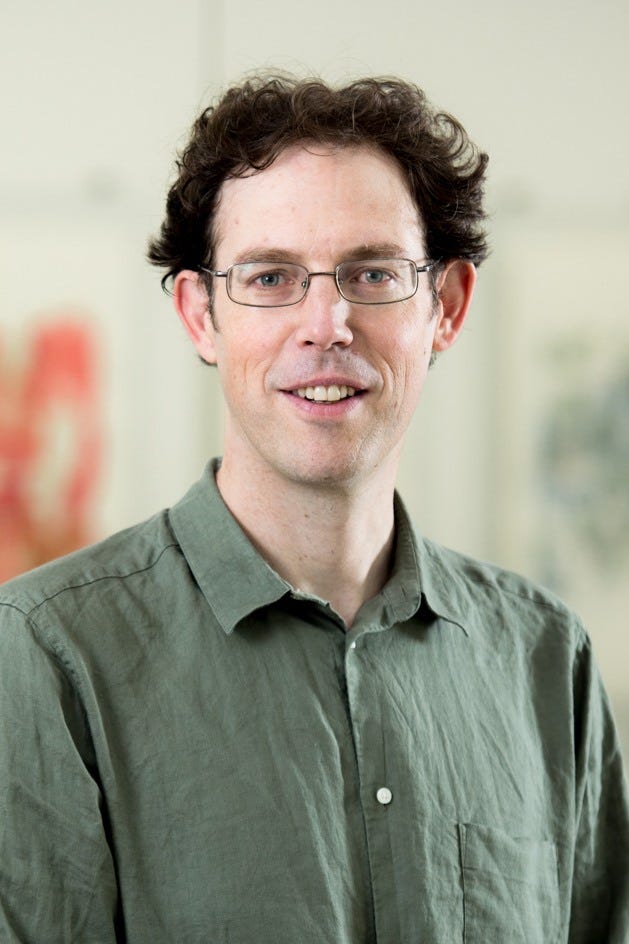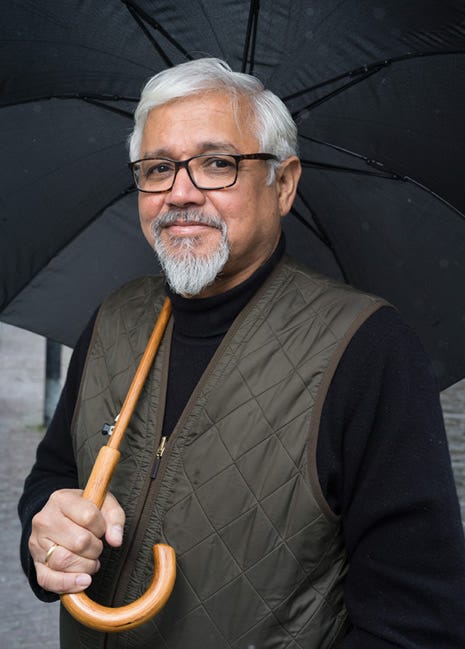NBN Newsletter #14
Featuring a curated playlist about museums and an interview with historian Brian Lander
Museums
For centuries, museums have provided us with cultural, historical, and scientific amusement. The Latinate word itself ‘museum’ — and Greek mouseion — indeed share roots with amusement. In the Greek and Roman worlds, musea were places to worship the muses and goddesses of science and art — music, poetry, and astronomy. Prominent artists, scientists, and thinkers would advance their craft at these museums and, in a secondary function, works of art and objects of interest would be displayed as is done in the museums we know today.
Over time, museums have evolved, becoming smaller, more specialized, and more abundant. Within a single city, one can visit a myriad of museums dedicated to specific forms of art, science, literature, and history. We have also begun to question certain concepts that once seemed innate to these collections, namely where the objects are from and the ways in which they were acquired. The British Museum famously contains many historical items from its former empire as well as other ‘spoils of war’ and gifts from wealthy collectors. Questions have arisen as to the legitimacy of the museum’s claim (as well as the claims of countless other museums around the world) on these items leading to debate over who ‘owns’ the cultural heritage and the right to possess and display these artifacts.
In this week’s playlist, we feature episodes that highlight museums around the world, covering a myriad of topics. In addition to the fantastic educational work that many museums engage in, we also present episodes that ask us to consider the philosophical and political issues with certain museums. What do museums represent? How have many museums been able to acquire and display certain objects? What does the future of museums look like? What role do museums play in strengthening local communities? All this and more in the episodes below!
Canadian History through the Eyes of the Canadian Canoe Museum: A Discussion with Jeremy Ward
Amy Sodaro, Exhibiting Atrocity: Memorial Museums and the Politics of Past Violence (Rutgers University Press, 2018)
Amy Lonetree, Decolonizing Museums: Representing Native America in National and Tribal Museums (UNC Press, 2012)
Seeing Truth in Museums: A Conversation about the Legacy and Future of Museums with Chris Newell
Clarissa Ceglio, A Cultural Arsenal for Democracy: The World War II Work of US Museums (University of Massachusetts Press, 2022)
Amy Potter et al., Remembering Enslavement: Reassembling the Southern Plantation Museum (U Georgia Press, 2022)
Jie Li, Utopian Ruins: A Memorial Museum of the Mao Era (Duke University Press, 2020)
The Problem with Museums: A Conversation with Georgina Adam and Nizan Shaked
Considering Museum Work? A Conversation with Curators from the Smithsonian
Stephen F. Auth, Pilgrimage to the Museum: Man's Search for God through Art and Time (Sophia Institute Press, 2022)
Sally Anne Duncan and Andrew McClellan, The Art of Curating: Paul J. Sachs and the Museum Course at Harvard (Getty Research Institute, 2018)
Nuala Morse, The Museum as a Space of Social Care (Routledge, 2020)
Scholarly Sources
Brian Lander is Stanley J. Bernstein Assistant Professor of History and Environment and Society at Brown University.
Q: What are you reading right now?
A: I just finished reading Amitav Ghosh’s Glass Palace and have started Sea of Poppies. Like all great historical fiction, Ghosh brings readers into the past in a way that non-fiction can’t. For example, early in the book one of the characters walks through a huge opium plant along the banks of the Ganges, describing the scale of the operation as well as the social relations involved in obtaining and processing the drug just at the time that opium profits led the British to attack Qing China in 1840.
Q: What is your favorite book or essay to assign to give to people and why?
A: I like assigning the Account of a ten-foot-square hut (Hojoki), a brief essay by a Japanese monk about his attempt to move to a remote cabin to avoid worldly desires. It’s a 13th-century Buddhist version of Walden. He ponders all the disasters he has seen, and the impermanence of life, in a way that resonates with many of the environmental concerns of my students.
Q: Is there a book you read as a student that had a particularly profound impact on your trajectory as a scholar?
A: Warren Dean’s With Broadax and Firebrand: The Destruction of the Brazilian Atlantic Forest blew my mind when I read it as an undergraduate. It successfully incorporates ecology and geological time scales into history while also providing a masterful account of the whole sweep of Brazilian history, all with a clear sense of how his narrative will be useful for conservation efforts.
Q: Which deceased writer would you most like to meet and why?
A: I consider Sima Qian the greatest historian ever, and would love to go back 2,150 years and talk to him. I’d ask him about all kinds of historical events that are not mentioned in his classic Records of the Grand Historian, but I’d also love to know more about how he composed such an innovative work. Of course, I couldn’t actually talk to him, so another interesting reason to meet him would be to hear how people spoke Chinese at the time of the Han empire.
Q: What’s the best book you’ve read in the past year?
A: I read Eric Trombert’s book The Sword and the Plough (French title: Le Glaive et la charrue), a detailed history of how the early Chinese empires conquered and attempted to colonize the region that is now northwest China. By carefully reading documents on wood excavated from their garrisons, he shows how the standard historiography has ignored the existence of the indigenous peoples of the oases in the region, who had their own languages and agricultural traditions. He argues that before the 18th century, the Chinese influence on Xinjiang was far smaller than traditionally thought, which is not what the Chinese government wants you to believe.
Q: Have you seen any films, documentaries, or museum exhibitions that left an impression on you recently?
A: I was very impressed by the recent Avatar film. It is fascinating to see a director work so hard to make a fights and explosions blockbuster movie with a deeply environmentalist message. And the visuals of the oceanic ecosystems are incredible. I am fascinated by the Avatar films because I think this computer-generated IMAX 3D wilderness is the closest many people will ever get to experiencing nature, which kind of sums up the state of the planet.
Q: What do you plan on reading next?
A: I hope to do more work on the histories of plants, so I’m going to read Jane Kilpatrick’s Fathers of Botany: The Discovery of Chinese Plants by European Missionaries. The scientific publications of 19th and early 20th-century naturalists are essential sources for studying how China’s environment has changed since then, so it looks to be a useful overview of that work. And it has lots of nice pictures.
New Books, Links, & Other Things
Vaclav Smil, Invention and Innovation: A Brief History of Hype and Failure (MIT Press, 2023)
Miguel Sicart, Playing Software: Homo Ludens in Computational Culture (MIT Press, 2023)
Interested in Becoming an NBN Host?
Are you interested in becoming a New Books Network host? Are you a professor, graduate student, or an expert in a particular field of study? Apply to become a host to help support our mission of creating a free and accessible academic library!






